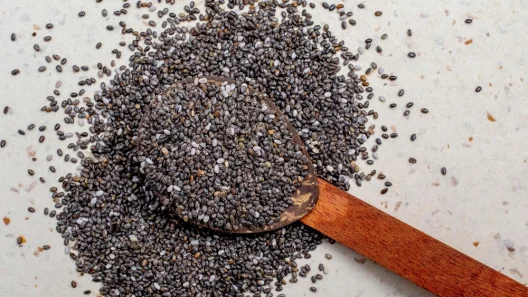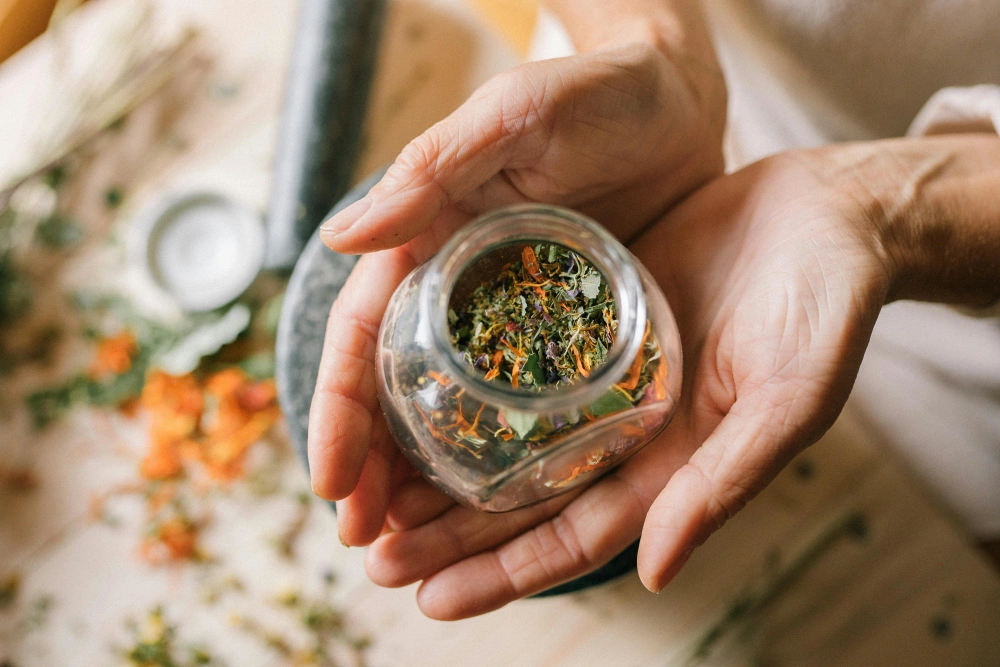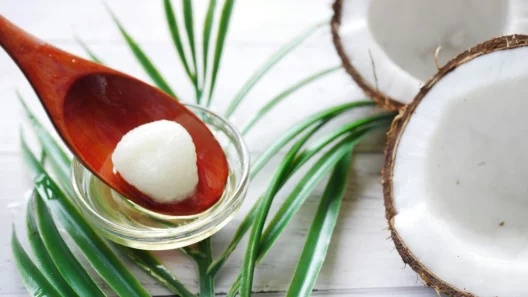Natural remedies have been humanity’s first medicine for thousands of years, with traditional healing systems like Ayurveda, Traditional Chinese Medicine, and Western herbalism offering time-tested solutions for common health concerns. In recent years, we’ve witnessed a resurgence of interest in these traditional approaches, as people increasingly seek gentler, more holistic alternatives to complement conventional medicine. Modern scientific research is now validating what traditional healers have known for centuries that nature provides powerful tools for supporting our health and wellbeing.
At MyGreenRemedy, we believe in a balanced approach that combines the wisdom of traditional practices with evidence-based modern science. This comprehensive guide explores natural remedies for some of the most common health concerns, from stress and sleep issues to digestive problems and immune support. Each section provides practical, research-backed information you can trust, with links to more in-depth articles on specific topics for those who want to explore further.
Whether you’re new to natural remedies or looking to expand your knowledge, this guide will help you navigate the world of herbal medicine, nutritional support, and lifestyle practices that can enhance your everyday health. Remember, while natural remedies can be powerful allies in your wellness journey, they should complement rather replace professional medical advice when needed.
Benefits of Natural Remedies
Why Choose Natural Remedies?
People are increasingly turning to natural remedies for several compelling reasons. Many seek gentler alternatives to pharmaceutical options, particularly for chronic conditions that require long-term management. Others appreciate the holistic approach of natural medicine, which addresses the root causes of imbalance rather than just suppressing symptoms. The preventive focus of many traditional healing systems also appeals to those who want to take proactive steps to maintain health rather than just treating illness once it appears.
Research suggests that properly used natural remedies typically offer fewer side effects than many pharmaceutical options, though they’re not without risks when used inappropriately. A review published in the American Journal of Public Health found that adverse reactions to herbal medicines are relatively rare compared to conventional drugs, especially when used appropriately under knowledgeable guidance.
The Science Behind Natural Approaches
Modern science continues to validate traditional remedies through pharmacological studies identifying active compounds and their mechanisms of action. For example, the anti-inflammatory properties of turmeric have been attributed to curcumin, which modulates inflammatory pathways in the body. Similarly, the calming effects of chamomile have been linked to apigenin, a flavonoid that binds to benzodiazepine receptors in the brain.
It’s important to note that “natural” doesn’t automatically mean “safe” or “effective.” The growing body of scientific evidence helps us distinguish between traditional remedies with genuine therapeutic value and those with only anecdotal support. At MyGreenRemedy, we focus on remedies with both traditional use patterns and scientific validation, providing you with approaches that offer the best of both worlds.
A Complementary Approach
The most effective healthcare strategy often combines conventional and natural approaches in a complementary framework. Natural remedies can excel at supporting overall wellness, managing mild to moderate symptoms, and preventing health issues from developing. Conventional medicine typically excels at diagnosing serious conditions, managing emergencies, and treating advanced disease. By understanding the strengths of each approach, we can make informed decisions about when to use natural remedies alone and when to seek professional medical care.
Natural Remedies for Common Health Issues
Stress & Anxiety Relief
In our fast-paced modern world, stress and anxiety have become increasingly common concerns. While some stress is a normal part of life, chronic stress can negatively impact both physical and mental health. Fortunately, nature offers several effective remedies for promoting calm and resilience.
Herbal Teas for Calm
Herbal teas provide a simple, gentle way to incorporate natural remedies into your daily routine. Chamomile tea has been shown in studies to reduce symptoms of anxiety, with one study published in the Journal of Clinical Psychopharmacology finding it produced significantly greater reduction in anxiety symptoms compared to placebo. Lemon balm tea has demonstrated anxiolytic effects in multiple human trials, reducing anxiety and improving calmness without sedation. Passionflower tea has shown comparable effectiveness to prescription anti-anxiety medications in some studies, with fewer side effects.
Essential Oils for Anxiety
Aromatherapy using essential oils can be a powerful tool for managing anxiety. Lavender oil has substantial research support, with multiple studies showing it can reduce anxiety levels in stressful situations ranging from dental visits to intensive care units. Bergamot oil has demonstrated anxiety-reducing effects in clinical studies, with the added benefit of uplifting mood. Frankincense oil contains compounds that may modulate the nervous system’s stress response.
Mind-Body Practices
While not “remedies” in the traditional sense, mind-body practices like meditation, yoga, and deep breathing exercises have strong scientific support for reducing stress and anxiety. Regular meditation practice has been shown to physically change the brain, increasing gray matter in areas associated with emotional regulation while decreasing it in the amygdala, which processes fear and anxiety.
For more detailed information on managing stress naturally, explore our comprehensive guide to Herbal Solutions for Stress and Anxiety Relief.
Sleep & Relaxation
Quality sleep is essential for physical repair, cognitive function, and emotional wellbeing. Yet approximately one-third of adults report regularly not getting enough sleep. Natural remedies can help promote restful sleep without the side effects associated with many sleep medications.
Chamomile for Sleep
Chamomile is one of the most researched natural sleep aids. A study published in BMC Complementary and Alternative Medicine found that participants who consumed chamomile extract experienced significant improvement in sleep quality compared to those who took a placebo. Chamomile contains apigenin, an antioxidant that binds to certain receptors in your brain that may promote sleepiness and reduce insomnia.
Lavender for Relaxation
The soothing scent of lavender has been shown to improve sleep quality in multiple populations, including new mothers, college students, and people with insomnia. Research published in the Journal of Alternative and Complementary Medicine found that lavender aroma improved sleep quality in women with insomnia. Place a few drops of lavender essential oil on your pillow or use a diffuser in your bedroom to create a sleep-promoting environment.
Valerian Root
Valerian root has a long history of use as a sleep aid, with modern research supporting its effectiveness. A review of 16 studies found that valerian improves sleep quality without producing the groggy feeling associated with some sleep medications. Valerian appears to work by increasing levels of gamma-aminobutyric acid (GABA), a brain chemical that helps regulate nerve impulses and calm nervous activity.
Creating a Bedtime Routine
Natural sleep remedies work best when combined with good sleep hygiene practices. Establishing a consistent bedtime routine signals to your body that it’s time to wind down. This might include dimming lights, disconnecting from electronic devices, taking a warm bath, practicing gentle stretching or meditation, and drinking a cup of caffeine-free herbal tea.
Discover more strategies in our dedicated article on Natural Remedies for Sleep.
Digestive Health
Digestive issues like bloating, indigestion, and irregularity are among the most common reasons people turn to natural remedies. Many traditional herbal medicines specifically target digestive function, offering gentle relief without harsh side effects.
Ginger for Digestion
Ginger has been used for centuries to support digestive health, and modern science has confirmed its effectiveness. Ginger contains compounds called gingerols and shogaols that help accelerate gastric emptying and relieve indigestion, bloating, and nausea. Research published in the World Journal of Gastroenterology found that ginger significantly accelerated gastric emptying and stimulated antral contractions in healthy volunteers.
Peppermint for IBS
Peppermint has antispasmodic properties that can relax the muscles of the digestive tract, making it particularly helpful for irritable bowel syndrome (IBS). Enteric-coated peppermint oil capsules have been shown in multiple studies to significantly reduce IBS symptoms including abdominal pain, bloating, and gas. The menthol in peppermint is thought to block calcium channels in the intestinal smooth muscle, producing a relaxing effect.
Probiotics for Gut Balance
While not an herb, probiotics are a crucial natural approach to digestive health. These beneficial bacteria help maintain a healthy balance of gut microbiota, which influences not just digestion but also immune function, mental health, and more. Fermented foods like yogurt, kefir, sauerkraut, and kimchi are excellent natural sources of probiotics.
Digestive Bitters
Traditional digestive bitters – herbal formulations containing bitter-tasting plants like gentian, dandelion, and artichoke, work by stimulating digestive secretions. The bitter taste triggers a reflex response that increases production of saliva, gastric juice, bile, and pancreatic enzymes, all of which support optimal digestion.
For a comprehensive look at traditional digestive remedies, read our guide to Ayurvedic Herbs for Gut Health: Turmeric, Ginger & More.
Hair & Skin Health
Our skin and hair are visible reflections of our internal health, and natural remedies can support both from the inside out and outside in. Many traditional beauty treatments harness the power of plants to nourish and protect our largest organ.
Aloe Vera for Skin
Aloe vera has been used for centuries to soothe and heal the skin. Modern research confirms its effectiveness for treating burns, including sunburn, and supporting wound healing. Aloe contains compounds called polysaccharides that stimulate skin repair and growth while providing anti-inflammatory and antimicrobial benefits. The gel inside aloe leaves is approximately 99% water, making it an excellent natural moisturizer that won’t leave skin feeling greasy.
Coconut Oil for Hair and Skin
Coconut oil has gained well-deserved popularity in natural beauty routines. Research published in the Journal of Cosmetic Science found that coconut oil is superior to mineral oil in preventing hair damage when used as a pre-wash or post-wash treatment. For skin, coconut oil’s medium-chain fatty acids provide moisturizing benefits while also offering mild antimicrobial protection.
Rosemary Oil for Hair Growth
Rosemary oil has shown promising results for supporting hair growth. A comparative study published in Skinmed found that rosemary oil was as effective as minoxidil (a conventional hair growth treatment) in treating androgenetic alopecia, with the added benefit of causing less scalp itching as a side effect. Rosemary is thought to work by improving circulation to hair follicles and potentially inhibiting the hormone DHT, which contributes to pattern hair loss.
Antioxidant-Rich Foods
Beautiful skin and hair start from within, and a diet rich in antioxidants helps protect against oxidative damage that accelerates aging. Colorful fruits and vegetables, green tea, dark chocolate, and spices like turmeric and cinnamon all provide antioxidants that support skin and hair health.
Learn more specialized techniques in our article on Natural Remedies for Thicker Hair.
Immune Support
A well-functioning immune system is our first line of defense against illness, and natural remedies can play a valuable role in supporting immune function throughout the year.
Garlic for Immunity
Garlic has been used for centuries to support immune health and fight infections. Modern research has identified allicin, a sulfur compound formed when garlic is crushed or chopped, as responsible for many of garlic’s immune-boosting effects. Studies suggest that regular garlic consumption may reduce the frequency and severity of colds and other infections.
Elderberry for Cold and Flu
Elderberry has gained popularity for its immune-supporting properties, particularly regarding respiratory infections. Research published in the Journal of International Medical Research found that elderberry supplementation significantly reduced the duration and severity of flu symptoms compared to placebo. Elderberries are rich in antioxidants called anthocyanins, which appear to have antiviral properties that may prevent viruses from entering and replicating in our cells.
Honey for Soothing Relief
Honey, especially raw, unprocessed varieties, offers multiple benefits for immune health. Its antimicrobial properties can help fight pathogens, while its soothing texture can relieve irritated throats. Research published in the Archives of Medical Research found that honey was more effective than conventional treatments for calming coughs in children with upper respiratory infections.
Turmeric for Inflammation
Turmeric and its active compound curcumin help support immune function through their potent anti-inflammatory and antioxidant effects. Chronic inflammation can suppress immune function, so turmeric’s ability to modulate inflammatory pathways indirectly supports immunity. Adding black pepper to turmeric significantly enhances curcumin absorption.
Find recipes and preparation methods in our guide to Traditional Natural Immune Boosters You Can Make at Home.
Pain & Inflammation
Whether from acute injuries or chronic conditions, pain and inflammation are among the most common reasons people seek natural alternatives to over-the-counter pain relievers.
Turmeric for Inflammation
Turmeric stands out as one of nature’s most powerful anti-inflammatory agents. Numerous studies have confirmed that curcumin, turmeric’s main active compound, matches the effectiveness of some anti-inflammatory drugs without the same side effects. Research published in the Journal of Alternative and Complementary Medicine found that turmeric extracts were as effective as ibuprofen for relieving pain and stiffness in patients with knee osteoarthritis.
Ginger for Pain Relief
Ginger shares many of turmeric’s anti-inflammatory properties and has been specifically studied for its pain-relieving effects. A meta-analysis published in Pain Medicine concluded that ginger supplementation was effective for reducing muscle pain following exercise-induced injury. Ginger appears to work by inhibiting inflammatory compounds called prostaglandins and leukotrienes.
Topical Remedies
For localized pain, topical natural remedies can provide targeted relief. Arnica gel has been shown in studies to reduce pain and inflammation associated with osteoarthritis and other musculoskeletal conditions. Capsaicin cream, derived from chili peppers, works by depleting substance P, a chemical that transmits pain signals to the brain. Menthol preparations create a cooling sensation that can temporarily override pain signals.
Omega-3 Fatty Acids
While not an herb, omega-3 fatty acids from fish oil, flaxseed, and walnuts are among nature’s most potent anti-inflammatory nutrients. Multiple studies have found that omega-3 supplementation can reduce pain and inflammation in conditions ranging from rheumatoid arthritis to menstrual cramps.
For those experiencing specific types of pain, our article on Natural Migraine Relief: Remedies Backed by Science offers targeted approaches.
How to Use Natural Remedies Safely
While natural remedies offer many benefits, they must be used wisely and with respect for their potency. Here are essential guidelines for safe use:
Consult with Professionals
Before starting any new natural remedy, especially if you have existing health conditions or take medications, consult with a healthcare provider knowledgeable about both conventional and natural medicine. Some herbs can interact with medications, and what’s safe for one person might be risky for another.
Start Low and Go Slow
When trying a new remedy, begin with the lowest effective dose and gradually increase if needed. This approach helps you identify the minimum dose that provides benefits while minimizing the risk of side effects. Be particularly cautious with essential oils, which are highly concentrated and should typically be diluted before use.
Quality Matters
The quality of natural remedies varies significantly between products. Look for standardized extractswhen available, which ensure consistent levels of active compounds. Choose products from reputable companies that practice third-party testing for purity and potency, especially for supplements that might contain heavy metals or other contaminants.
Patch Testing
Before applying any new topical remedy widely, perform a patch test on a small area of skin to check for adverse reactions. Apply a small amount to your inner forearm and wait 24-48 hours to see if any redness, itching, or irritation develops.
Know the Limitations
Natural remedies excel at supporting wellness and managing mild to moderate symptoms, but they have limitations. Seek immediate medical attention for severe symptoms, sudden changes in health, or conditions that conventional medicine treats more effectively. Natural remedies should complement, not replace, appropriate medical care.
Special Populations
Pregnant and breastfeeding women, children, the elderly, and those with compromised liver or kidney function should exercise particular caution with natural remedies and always consult a healthcare provider before use.
Tips for Incorporating Natural Remedies into Daily Life
Integrating natural remedies into your routine doesn’t need to be complicated. Here are simple ways to make them part of your everyday wellness practice:
Morning Rituals
Start your day with a cup of herbal tea matched to your needs – ginger or peppermint for digestion, green tea for antioxidants, or tulsi for adaptogenic stress support. Add turmeric to your morning smoothie or eggs, along with a pinch of black pepper to enhance absorption.
Mealtime Medicine
Incorporate medicinal herbs and spices into your cooking. Add garlic to savory dishes, sprinkle cinnamon on oatmeal, use rosemary with roasted vegetables, and include ginger in stir-fries and sauces. Fermented foods like yogurt, kefir, or sauerkraut make excellent side dishes that support gut health.
Evening Wind-Down
Create a relaxing bedtime routine with natural sleep supports. Drink a cup of chamomile or passionflower tea, diffuse lavender essential oil in your bedroom, or apply a diluted lavender massage oil to your temples and wrists.
DIY Medicine Cabinet
Prepare simple natural remedies to have on hand when needed. Make a fire cider tonic for immune support during cold season, create a calendula salve for skin irritations, or prepare a ginger-honey syrup for sore throats.
Consistency is Key
Unlike pharmaceuticals that often provide immediate symptom relief, many natural remedies work gradually by supporting your body’s innate healing processes. Consistent daily use typically yields the best results, especially for preventive approaches.
Listen to Your Body
Pay attention to how your body responds to different remedies. Keep a simple journal to track what works well for you and what doesn’t. Remember that natural medicine is highly individual, what helps one person might not work as well for another.
Create your own natural health rituals, like Oil Pulling for a beautiful smile, but first learn about Oil Pulling Benefits and How to do it Safely.
FAQs
Are natural remedies safe for everyone?
While generally safer than pharmaceutical options when used appropriately, natural remedies aren’t risk-free for everyone. Certain populations including pregnant and breastfeeding women, young children, older adults, and those with specific health conditions should exercise particular caution and consult healthcare providers before use. Some herbs interact with medications or may be inappropriate for people with certain health conditions.
Can natural remedies replace medication?
In some cases, natural remedies can reduce or eliminate the need for certain medications, but this should only be done under professional supervision. Never stop taking prescribed medication without consulting your doctor. For serious health conditions, natural remedies typically work best as complements to conventional treatment rather than replacements.
How quickly do natural remedies work?
The timeframe varies significantly depending on the remedy and the condition being addressed. Acute symptoms like headaches or indigestion may respond within minutes to hours. Chronic conditions may require weeks or months of consistent use before significant improvements are noticed. Lifestyle approaches like dietary changes and stress management may take even longer to show full benefits but often create more sustainable results.
Are expensive supplements better than simple herbal preparations?
Not necessarily. While high-quality supplements from reputable companies can offer convenience and standardized doses, many traditional preparations like herbal teas, tinctures, and culinary use of herbs can be equally effective and often more affordable. The best choice depends on your specific needs, preferences, and budget.
How do I know which remedies are right for me?
Finding the right natural remedies involves some thoughtful experimentation and attention to how your body responds. Consider your specific health concerns, any medications you’re taking, your personal preferences, and possibly working with a knowledgeable practitioner. Start with one remedy at a time so you can clearly identify what’s working and what isn’t.
Conclusion
Natural remedies offer a valuable approach to supporting health and wellbeing that complements conventional medicine. From herbal teas that calm our nerves to spices that reduce inflammation, nature provides an impressive pharmacy of healing substances that have stood the test of time, and are now being validated by modern science.
The key to successfully using natural remedies lies in informed, mindful application. By understanding both the potential benefits and limitations of these approaches, we can make wise choices that support our health without rejecting the valuable advances of conventional medicine when truly needed.
We encourage you to explore the specific spoke articles linked throughout this guide for more detailed information on each topic. Whether you’re interested in Ayurvedic herbs for gut health, natural approaches to migraine relief, or traditional immune boosters, you’ll find research-backed guidance to support your wellness journey.
Remember that health is not a destination but an ongoing journey of learning, experimenting, and listening to your body’s wisdom. By combining the best of traditional natural remedies with modern scientific understanding, we can all take proactive steps toward lasting vitality and wellbeing.
References:
- National Center for Complementary and Integrative Health. (2022). “Herbal Medicine.” https://nccih.nih.gov/health/herbsataglance.htm
- World Health Organization. (2019). “WHO Global Report on Traditional and Complementary Medicine.”
- Mayo Clinic. (2022). “Herbal supplements: What to know before you buy.”
- Journal of Ethnopharmacology. (2021). “Traditional herbal medicines for modern times.”
- American Journal of Public Health. (2017). “Adverse events associated with herbal medicines.”
- BMC Complementary and Alternative Medicine. (2019). “Chamomile for sleep quality.”
- Journal of Clinical Psychopharmacology. (2016). “Lemon balm for anxiety.”
- World Journal of Gastroenterology. (2020). “Ginger for digestive health.”
- Journal of Cosmetic Science. (2003). “Coconut oil for hair protection.”
- Skinmed. (2015). “Rosemary oil vs. minoxidil for hair growth.”
- Journal of International Medical Research. (2004). “Elderberry for flu symptoms.”
- Journal of Alternative and Complementary Medicine. (2016). “Turmeric for osteoarthritis.”
- Pain Medicine. (2015). “Ginger for muscle pain.”
- Archives of Medical Research. (2014). “Honey for cough relief.”









